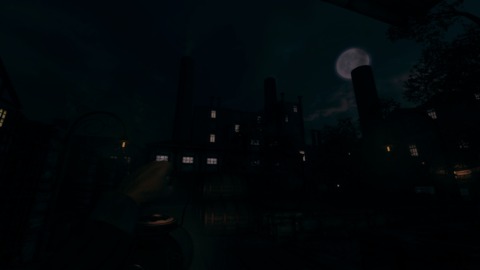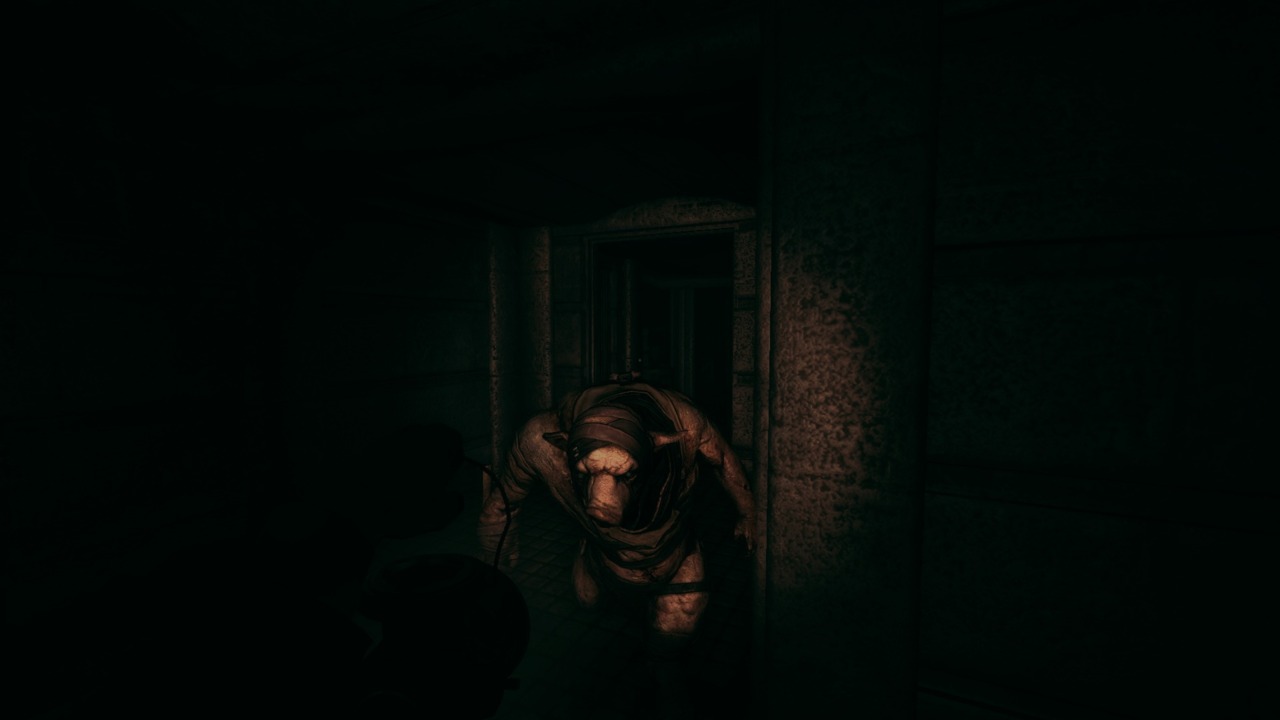Amnesia: A Machine for Pigs is cerebral, legitimately frightening, and very, very disturbing. This semi-sequel to 2011's surprise hit Amnesia: The Dark Descent from developer The Chinese Room takes horror-movie tropes and stirs them into a meditation on the meaning of life, love, war, religion, madness, and the impact of industrialism on 19th-century England. Put all of this into an incredibly creepy adventure that takes place almost entirely in the pitch dark, toss in some pig-men, and you have one supremely unnerving adventure that is impossible to put down.
This eerie tale takes place at the end of 1899 in London. You play as Oswald Mandus, a rich industrialist/adventurer who awakens at the beginning of the game in his mansion with no memory of his recent past. He seems to have lost his two sons, his wife may be dead, something bad happened recently during an expedition to Mexico, and there is something very strange going down with regard to pigs in and around his home and adjacent factory. You move through the ominous mansion in first person, piecing together your troubled past courtesy of notes, the odd entry in your journal, sound recordings that play on Victrola-like devices, and even telephone conversations with a mysterious man who may have your children held captive in the bowels of the factory.
The tale is rolled out perfectly. Instead of bluntly beating you over the head with blood and guts, the game uses the much more satisfying tactic of slowly building a sense that something is deeply wrong with every step you take in the mansion and the steampunk-styled factory complex beneath it. Mandus goes from being a mildly unhinged man to a possible mad scientist playing God to a genocidal madman.
Serious themes are touched on, as well, mostly courtesy of the scripting in the notes that power much of the plot development. Much of this is surreal and sick, hinting at torture and mass murder on an industrial scale. That said, the script takes the high road, with the authors choosing literary skill and creepy subtlety over pulp violence every time. Much of the plot revolves around the meaning of love and life at a time when the industrial age is changing humanity dramatically, possibly turning us all into pigs in a machine. All of the horrors that the 20th century will soon offer also play a role in motivating Mandus, lending humanity to a protagonist who could easily have become a moustache-twirling villain.

Even the ending is handled quite well. The developers resisted the urge to put a neat bow on everything, so all of the mysteries are not totally resolved, and the story stays surreal to the end. You can come up with good answers to all of the questions by going back over the discovered notes and journal entries, but the game dodges big reveal moments and awkward exposition. Aspects of the conclusion are dragged out somewhat, though. The final hour is padded with repetition in both words and deeds, with you climbing up and down a few too many ladders.
The gameplay itself isn't quite as fraught with tension as the plot that you follow, although it comes close. There are no logic puzzles, no inventories full of junk to accumulate, no combat, or anything else that would get between you and the story. You mostly follow a linear path through the game's many levels, figuring out how to open locked doors, spin various dials and wheels, and so forth. There isn't a single problem to be solved that requires more than a little bit of exploration and observation. All that gets in your way are the so-so visuals, which lack contrast in spots and are too reliant on a couple of basic themes. The steampunk industrial setting, for example, too often turns into a maze of corroded corridors, steam, and sheet metal.

Real tests are provided in levels that feature the pig-man monsters, though. There is no way to fight them, and they can take you down with just a few swipes of their hooves. Dodging them is possible, although you generally need to turn off your lantern to do so, and this of course plunges you into nearly complete darkness. Sound is superb all around, from the chugging of the Victorian-era machinery to the creepy musical score. The music utilizes thunderous organs and vaudevillian jigs, but it is never better than when you are fumbling around in the dark, listening to the grunts and squeals of the pig-man monsters all around you. It sets up some truly terrifying moments. It's all too easy to think that you've gotten away from a pig-man, only to switch on the lantern and illuminate porky standing right in front of you.
You probably shouldn't play the game if you've had a bad day. This is a captivating adventure, but it's also a very dark and disturbing one that touches on depressing real-world themes and doles out psychological horror along with monsters and gore. Still, this gives the game added depth and a literary weight that elevates it well above much of the horror genre in general, especially in a game that arrives without much pretension and with a plot device about murderous pig-men.



